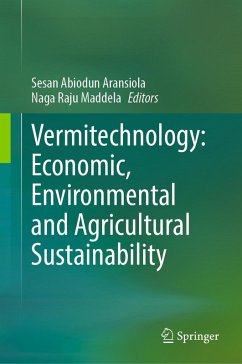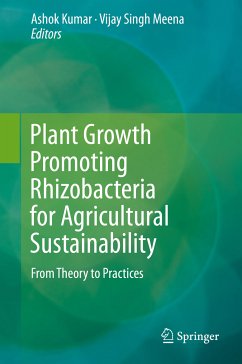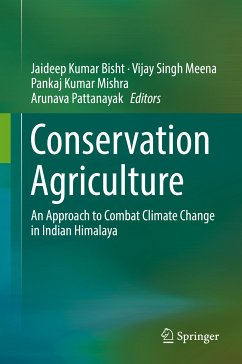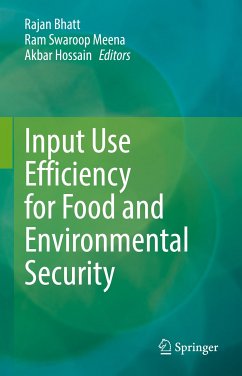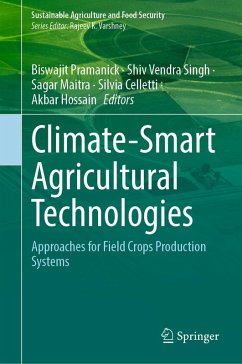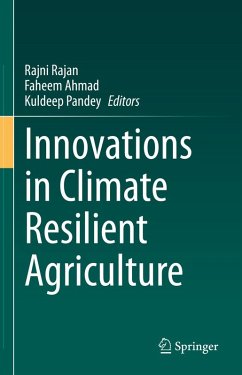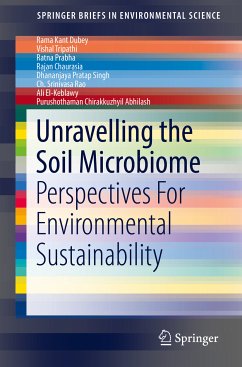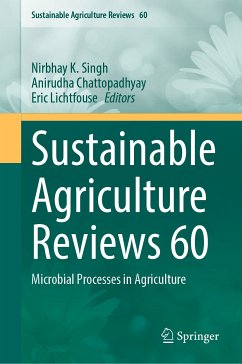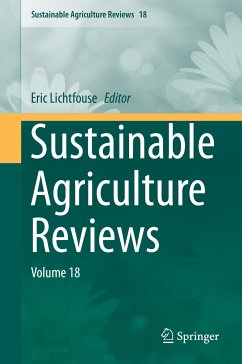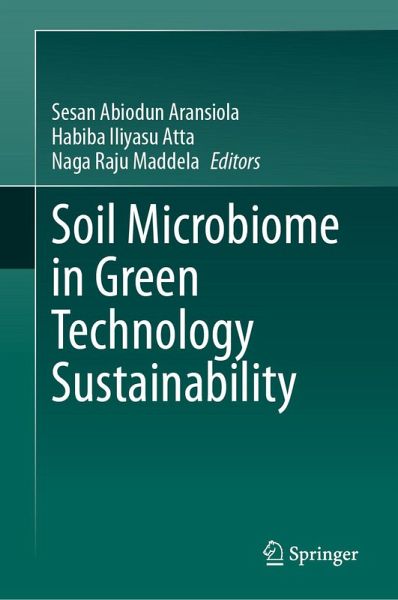
Soil Microbiome in Green Technology Sustainability (eBook, PDF)
Versandkostenfrei!
Sofort per Download lieferbar
160,95 €
inkl. MwSt.
Weitere Ausgaben:

PAYBACK Punkte
80 °P sammeln!
This book addresses sustainable solutions to problems in various environments using microorganisms dwelling in the soil and sustainable approaches applicable now and in the future. It focuses on the role of the soil microbiome-a rich community of beneficial bacteria and fungi-in green technology for a safe environment. This volume delves into the dynamics between the soil ecosystem and microorganisms; their interrelationships; and man's role in maintaining soil health and quality.The chapters cover topics such as pollution control, enhancing soil fertility, climate change mitigation, biocontro...
This book addresses sustainable solutions to problems in various environments using microorganisms dwelling in the soil and sustainable approaches applicable now and in the future. It focuses on the role of the soil microbiome-a rich community of beneficial bacteria and fungi-in green technology for a safe environment. This volume delves into the dynamics between the soil ecosystem and microorganisms; their interrelationships; and man's role in maintaining soil health and quality.
The chapters cover topics such as pollution control, enhancing soil fertility, climate change mitigation, biocontrol of pathogens, and nanotechnology applications. The authors provide an expert analysis of how these microbial communities contribute to green technological sustainability. Readers will find contributions by renowned scholars who explore these themes through empirical research and practical case studies. The book highlights how these microorganisms can be major players in nature-based solutions while shifting perceptions from harmful to beneficial roles.
Soil Microbiome in Green Technology Sustainability is essential reading for researchers, scholars, practitioners, students at all levels, and anyone interested in environmental science or biotechnology. It offers valuable insights into using microbial capabilities for sustainable development across various industrial sectors. This volume is particularly relevant for those involved in renewable energy, recycling, carbon capturing, storage technologies, or any field seeking eco-friendly solutions to global challenges.
The chapters cover topics such as pollution control, enhancing soil fertility, climate change mitigation, biocontrol of pathogens, and nanotechnology applications. The authors provide an expert analysis of how these microbial communities contribute to green technological sustainability. Readers will find contributions by renowned scholars who explore these themes through empirical research and practical case studies. The book highlights how these microorganisms can be major players in nature-based solutions while shifting perceptions from harmful to beneficial roles.
Soil Microbiome in Green Technology Sustainability is essential reading for researchers, scholars, practitioners, students at all levels, and anyone interested in environmental science or biotechnology. It offers valuable insights into using microbial capabilities for sustainable development across various industrial sectors. This volume is particularly relevant for those involved in renewable energy, recycling, carbon capturing, storage technologies, or any field seeking eco-friendly solutions to global challenges.
Dieser Download kann aus rechtlichen Gründen nur mit Rechnungsadresse in A, B, BG, CY, CZ, D, DK, EW, E, FIN, F, GR, HR, H, IRL, I, LT, L, LR, M, NL, PL, P, R, S, SLO, SK ausgeliefert werden.



